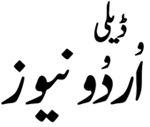Dekhiye is Aurat ki badqismati ki kahani
A Pakistani-born woman has won a 17-year legal battle over a university error that triggered damaging gossip that changed the course of her life, reports the BBC’s Umer Nangiana in Lahore.
“The university crushed my dreams and it never apologised,” said Wajiha Arooj. “No money could compensate for the damage their act did to my honour and reputation in society.”
It began with a seemingly minor error, when Ms Arooj, now 38, was studying for a master’s degree in English at the University of the Punjab in Lahore.
The university wrongly marked her absent for one of her examinations and she was told she had failed.
A university official, Ms Arooj said, then suggested to her father that he was unaware of his daughter’s “activities” or her whereabouts on exam day.
In Pakistan’s conservative society, it was a precarious situation for a young woman to find herself in. Daughters are generally protected, dating is viewed dimly and certainly not without a chaperone. If Ms Arooj had been out somewhere alone, the speculation went, perhaps a man was involved?
‘So distressed’
The news of Ms Arooj’s alleged absence reached her family and her peers.
“Even my mother looked at me in a strange way, with doubt in her eyes,” she said. “My cousins started asking me questions on why I missed the exam.”
The gossip, she said, spread so far and wide that it became difficult for her to face her classmates, who taunted her.
“Gossiping in the classroom, they would mockingly say that one can go anywhere on the pretext of taking an exam. And they would make sure that I could hear them.”
Relatives and family friends had already objected to her taking evening classes. As the gossip spread, they wondered whether she had been skipping classes all year long and going somewhere else.
“At one point I was so distressed I even considered committing suicide,” she said.
Image copyrightAFPImage captionSociety remains conservative – this year Islamabad banned Valentine’s Day celebrations
So she took action against the university in the Lahore High Court. Her immediate family fully backed her and her father, who is a practicing lawyer and a retired judge, represented her.
Four months later, university officials produced her exam answer sheet in court. They blamed the error on a failure by clerical staff to check the attendance sheet properly.
The university then corrected the error and issued a new examination result, while the court ruled that the university had been negligent.
But, said Ms Arooj, the damage had already been done. “It was very difficult for me to regain the same respect I had among the people around me,” she said. She then sued the university for damaging her reputation.
Overseas move
Meanwhile, fearing for her future, Ms Arooj’s parents decided to marry her off quickly. Her immediate family were very progressive, she said, but the part of society she came from was more conservative.
Four months after finishing her final exam, she was married.
“My parents thought it better that I get married soon so that I did not have to go to the university again and face embarrassing questions from people,” she said.
But getting married meant she was unable to continue her studies with a view to joining Pakistan’s civil service, which had been her goal.
Both her sisters, however, carried on studying and one of them is a serving judicial officer.
A few years after getting married, Ms Arooj and her husband moved to Canada with their young daughter and had two more children there. She did not get a chance to start a career but says she is happy there.
Image captionMs Arooj now lives in Canada with her husband and three children
The case, meanwhile, made its way slowly through the courts.
Sagheer Muhammad, her father, said the university kept challenging his daughter’s case in the higher courts.
“In the process they spent five years arguing and the rest in gathering evidence in their defence,” said Mr Muhammad.
Last year a civil court in Lahore ordered the university to pay her 800,000 PK rupees ($7,630, £6,156) in damages. The university challenged the ruling but it was upheld by an appeal court earlier this month.
However, the university still reserves the right to challenge the appeal court’s decision.
A university spokesperson, Khurrum Shehzad, told the BBC that the administration would first look into the court’s detailed verdict as it was an old case.
“We will see if the student is in the right, [then] we would definitely comply with court orders. If we feel the university was in the right, we would contest the order on the next available legal platform,” the spokesperson said.
‘Victory’
Dr Farzana Bari, former director of gender studies at Quaid-e-Azam University in Islamabad and a known human rights activist in Pakistan, told the BBC that while Pakistani society was changing in some ways, the same taboos existed.
“Even today if a girl finds herself in a similar situation, she would face the same gossip and pressure from the society,” she said.
She said she was surprised Ms Arooj was able to pursue the case for so long. “Generally, people do not have trust in the judicial system or they give up early,” she said.
Ms Arooj, meanwhile, gave a muted welcome to the court win.
“I just wanted an acknowledgment that I was not wrong, therefore I still consider this as victory.”
